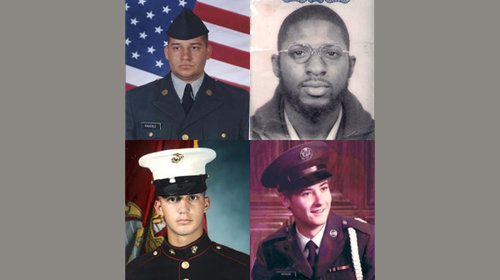
Federal courts are scrutinizing the government’s use of its secret No Fly List, and they don’t like what they see. In two recent decisions, judges have either rejected or expressed skepticism about the government’s arguments for secrecy and against a meaningful process for people to challenge their inclusion on the blacklist that bans them from travel to or from the United States or over American airspace. These decisions come on the heels of an August 2013 ruling in the ACLU’s No Fly List challenge, in which a court found, in a first-of-its-kind preliminary ruling, that our clients’ ability to fly internationally is protected by the Constitution.
On January 14, 2014, U.S. District Judge William Alsup issued a decision in the case of Rahinah Ibrahim, a Stanford PhD student and Malaysian citizen who was prevented from boarding a flight back to the United States, handcuffed, and held in a detention cell for two hours based on what turned out to be her mistaken placement on the No Fly List. After a trial, Judge Alsup concluded that the government’s internal administrative redress procedures (the same procedures at issue in the ACLU’s case) violate the Constitution’s Due Process clause because they do not provide a meaningful opportunity to contest or expunge erroneous information that forms the basis for inclusion on the list. He required the government to disclose to Ms. Ibrahim whether she is on the No Fly List and to “cleanse and/or correct its lists” of mistaken information about her.
In another ruling issued on January 22, 2014, U.S. District Judge Anthony Trenga rejected the government’s request to dismiss a case brought by Gulet Mohamed, a U.S. citizen who alleges that he was prevented from returning to the United States from Kuwait because he appeared on the No Fly List, and that he was subsequently subjected to beatings and mistreatment while in detention in Kuwait.
Judge Trenga was unsparing in describing the consequences of inclusion on the No Fly List: “The impact on a citizen who cannot use a commercial aircraft is profound,” he wrote, and “placement on the No Fly List is life defining and life restricting across a range of constitutionally protected activities and aspirations.” In short, in Judge Trenga’s words, “a No Fly List designation transforms a person into a second class citizen, or worse.”
Judge Trenga echoed — and cited to — the judge’s decision in the ACLU’s lawsuit, which we filed in June 2010 on behalf of 13 U.S. citizens, including four military veterans, who were barred from flying to, from, or within the United States because of their apparent placement on the No Fly List. In our case, the judge added that “[t]he realistic implications of being on the No Fly List are potentially far-reaching,” and can prevent a listed person from traveling by air, sea, or land. In subsequent briefing, we explained that the No Fly List violates the Constitution because it deprives those who are on it of their ability to travel without any notice, stated reasons, or a hearing to challenge the denial of their rights. A decision in our case could come any day, so stay tuned.
Learn more about the no-fly list and other civil liberties issues: Sign up for breaking news alerts, follow us on Twitter, and like us on Facebook.

